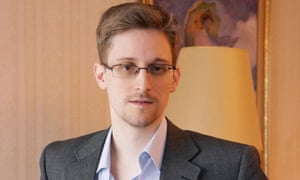The NSA whistleblower Edward Snowden will be beamed by video link into a New York meeting on Thursday, at which a draft international “treaty” bearing his name will be launched in an attempt to persuade governments around the world to strengthen privacy laws.
The so-called “Snowden Treaty” is conceived as a way for states to begin pushing back against the mass surveillance undertaken by the US National Security Agency and its cohorts. Snowden, who leaked details of the agency’s digital data dragnet, has seen and approved the draft document, though he is not its author.
The “International Treaty on the Right to Privacy, Protection Against Improper Surveillance and Protection of Whistleblowers”, as it is otherwise known, aims to elevate digital privacy into a 21st-century human right. Under its terms, mass surveillance of phone calls and online activity would be outlawed, oversight of state bodies involved in surveillance would be stepped up, and whistleblowers – like Snowden himself – would be afforded international protection.
Snowden has lived in Russia since June 2013, having fled Hong Kong in expectation of his arrest and prosecution by the US government.
The Snowden Treaty is the brainchild of David Miranda, the civil liberties campaigner and partner of journalist Glenn Greenwald, who broke stories based on the Snowden leaks with the Guardian (Greenwald now writes for The Intercept). Miranda said he was inspired to pursue the idea of a new international privacy campaign after he was interrogated for almost nine hours under the UK Terrorism Act in August 2013.
“Instead of making me frightened and intimidated, the situation opened my eyes,” Miranda told the Guardian. “I could see the kind of power that was being wielded, and that we need proper institutions like the United Nations to provide oversight and help countries come together to push for change.”
Miranda said that diplomats from several countries had already been approached about the draft treaty and were showing great interest in the project, though he declined to name any state. “It’s important they act at their own speed when they feel comfortable, rather than being pressurized by us,” he said.

View all comments >
comments
Sign in or create your Guardian account to join the discussion.
This discussion is closed for comments.
We’re doing some maintenance right now. You can still read comments, but please come back later to add your own.
Commenting has been disabled for this account (why?)